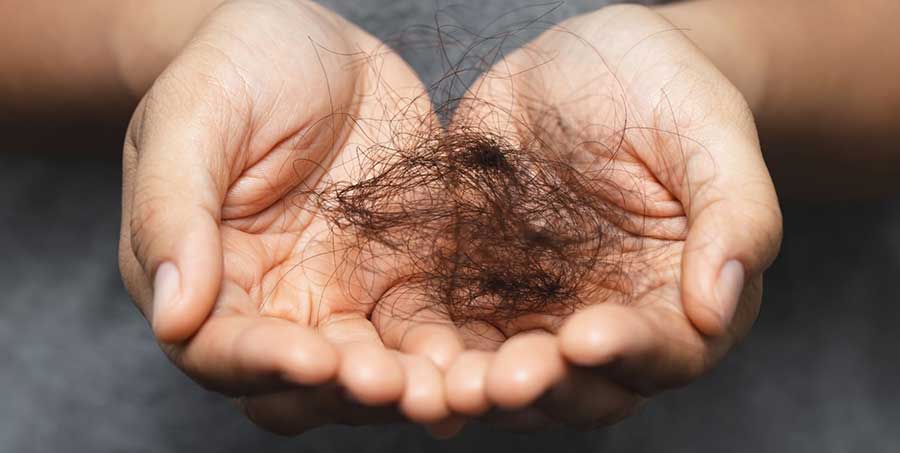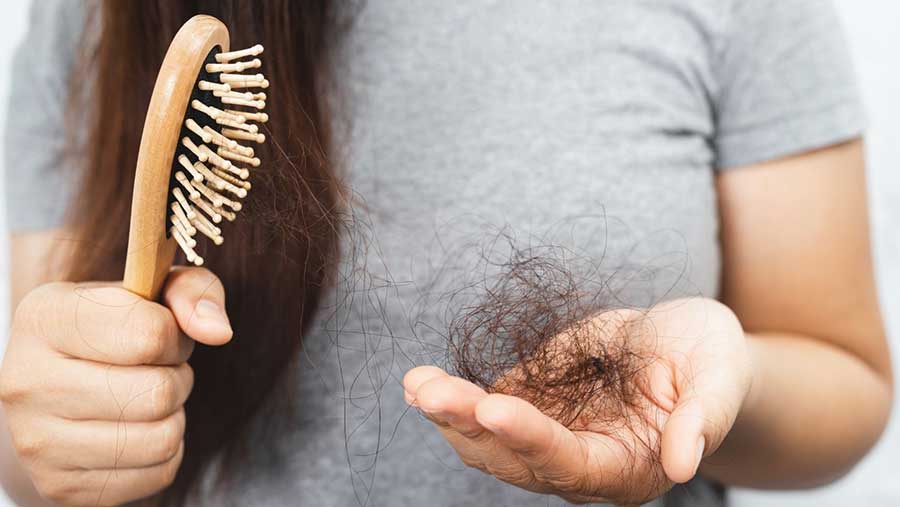I have always suffered from hair loss, especially during puberty, just like many other people around the world. But I never realized the intensity of this problem till I started talking to my friends about it. Knowing that almost everyone around me suffers from it made me want to do my own research.
My biggest question was, is hair loss as much of a problem as it seems? Are there reasons behind it, or is it something that we are born with? I am sure that I am not the only one with these questions or the only one suffering from this. We are covered in hair just like so many other animals, so it is a natural part of our body; therefore, we all must also share some similar experiences!
The answer is yes, hair loss is common in everyone at every age, but it has to be in moderation. According to the American Academy of Dermatologists, the normal amount of hair loss is up to 100 strands of hair per day. However, if you have bald spots, patchiness, and clumps of hair falling out, that is not normal at all. Did you also know that, on average, women lose more hair than men? Well, now you do.
Which vitamin deficiency causes hair loss?

The most important nutrient for our body is vitamins. So, naturally, one would assume that some form of vitamin deficiency is the culprit for excess hair loss.
The most important vitamin for hair is vitamin D, as it helps to create new hair follicles. The best way to take in vitamin D is through sun exposure, but it can also be taken in dietary form. It is recommended that you take around 600 IU or 15 micrograms of this vitamin daily.
Other vitamin deficiencies that cause hair loss include iron deficiency, especially in pre-menopausal women, zinc deficiency, and more rarely, selenium deficiency.
Illnesses that can cause hair loss
Vitamin deficiency might be the most common cause of hair loss, but it certainly is not the only one. Another common reason might be because you are or were suffering from illnesses, surgeries, or traumatic events.
Medical conditions such as thyroid disease, alopecia areata, trichotillomania, and scalp infections like ringworm are some major causes. However, it can also be due to medication taken for the treatment of cancer, high blood pressure, depression, and heart problems. Another less talked about the reason for hair fall is stress or extreme weight loss, especially in women.
How to stop hair fall immediately

Now, as you read along, you might worry that your hair loss is permanent and that your hair will keep on falling with no cure but don’t worry! There are a lot of ways to stop hair fall, as listed below:
- Diet: Eating food containing raw vegetables, fresh herbs such as parsley, basil, and salad greens. Other things like vitamin A and protein are also important.
- Supplements: Taking multivitamins that have all necessary vitamins, such as A, B, C, D, iron, selenium, and zinc. Ginseng and saw palmetto are great, as well as they are made from nature.
- Care: caring for your hair is the best way to prevent hair fall. Such as washing hair daily using mild shampoo keeps the scalp clean, coconut oil and olive oil are said to be great according to researchers, using gentle hairstyles without any treatments.
- Medical treatment: if you have the money and need for a more immediate and reliable solution then having treatments like laser therapy, and injecting PRP might be good for you.
- Other ways: some other ways to reduce hair fall easily are using essential oils, onion juice, and increasing blood flow to the head by massaging the scalp or partaking in yoga.
Why is my hair falling out as a female?
As mentioned above, hair fall affects women more than men, so there must be a reason, don’t you think? Moreover, knowing the cause helps to reach the solution faster.
One reason that you may have hair loss is genetic! We all have different sizes of hair follicles which is due to our mother, grandmother, or even aunts.
A more common reason for hair loss in women is due to pregnancy, as it imbalances the hormones. Also, thyroid disorders, anemia, PCOS, and menopause can be related to hair loss problems.
Furthermore, there are certain hairstyles that also cause hair loss, like cornrows or too-tight braids. Women also use more dyes, chemical treatments, and flat irons to increase damage to their hair.
Why is my hair falling out like crazy?

Some common reasons why your hair is falling out like crazy can be simple and reversible, but it can also be due to other serious diseases, so seeing a dermatologist is important if you think it is serious.
But, reasons you might have crazy hair loss could be due to lack of protein and iron in your diet, which is essential. Moreover, as stated above, it could also be linked to using blow driers and other heat products to further damage the hair. More serious problems that cause hair loss are thyroid problems, hormonal imbalance, stress, or starting a new medication that has this as a side effect.
Do females experience hair loss at age 25?
Believe it or not, age has a lot of impact on hair loss. There are a lot of factors that affect hair loss, and one of the important ones is age and genes.
Even though hair loss is more common in the older generation, it can affect young people as well. In fact, it was found that 40% of men experience noticeable hair loss by age 35, and 40% of women will have noticeable hair loss by age 40. On average, most women dealing with hair loss problems are between the ages of 25 and 35. The most common causes for hair loss in young women are stress, poor nutrition, and changes in medicines like birth controls. So yes, it is common to experience hair loss at the age of 25 as a woman.
To sum everything up, it is common for everyone to experience hair loss at any age. Too much hair loss can be due to serious problems, but mostly, it can be treated in various easy ways as long as you’re willing to put effort into it. Lastly, you are not alone if you experience this, and most of the time, the damage can be reversed with proper medication and care.

